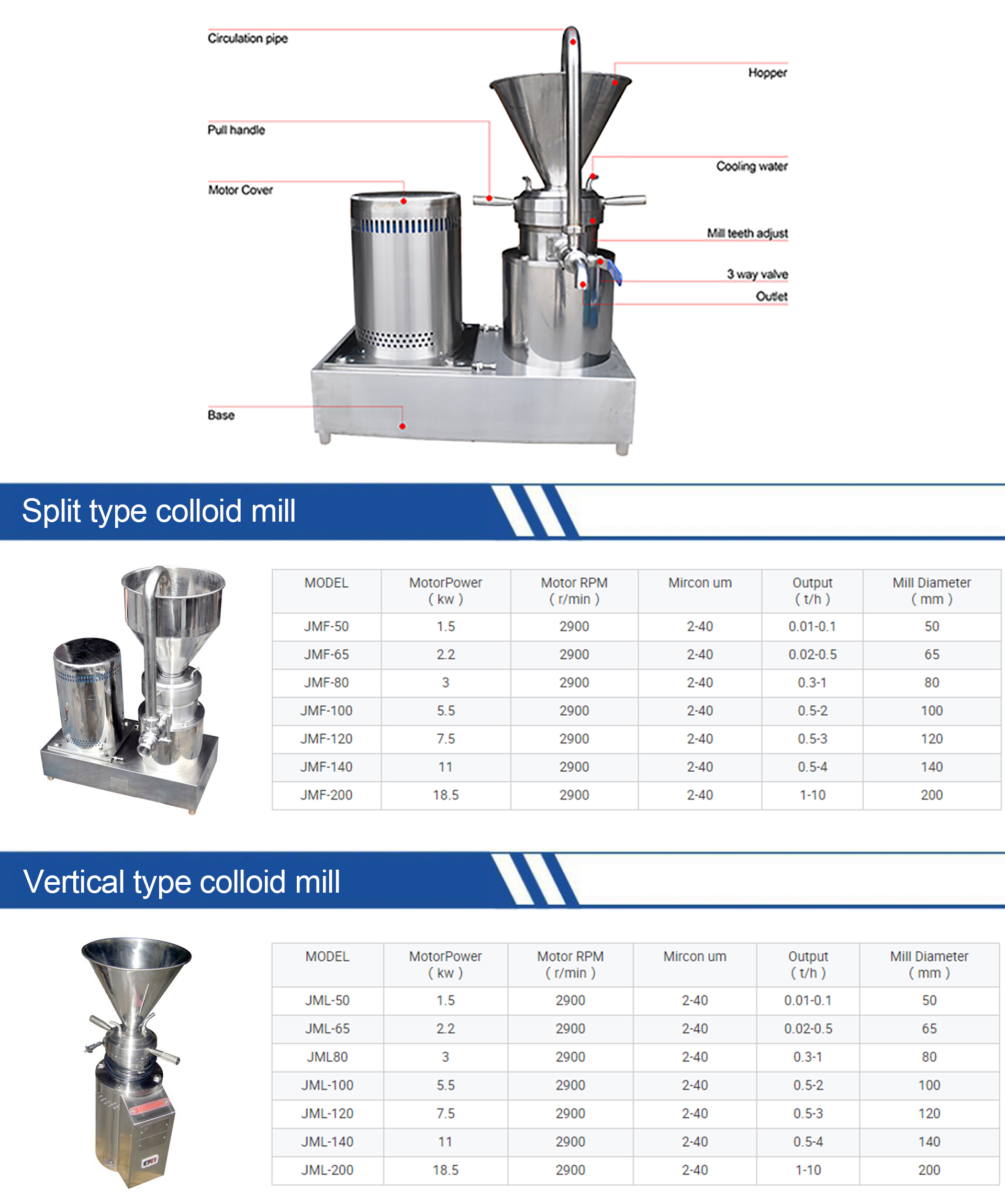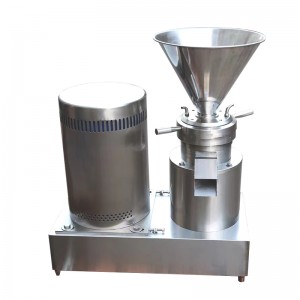peanut butter tomato sauce chili paste colloid mill
A colloid mill is a form of grinding and mixing machine that is primarily used in the food, pharmaceutical, and cosmetic industries. The machine is designed to reduce particles to the submicron range for the production of suspensions, emulsions, and colloid solutions. It utilizes a high-speed rotor that rotates at around 3000 RPM, which interacts with a stationary stator system. This rotor-stator interaction creates a shear and impact zone, which reduces the size of the particles being processed.
One of the primary benefits of a colloid mill is its ability to produce stable and homogeneous products. This is achieved by its unique construction, which ensures that all particles in the mixture are subjected to the same shear forces. This uniformity in particle size distribution results in improved texture, taste, and stability of the final product.
Another key benefit of using a colloid mill is its ability to process a wide range of viscosity levels. The machine can handle both high and low viscosity products, producing a consistent and uniform product regardless of the level of viscosity. This flexibility makes the colloid mill an attractive option for manufacturers who produce a variety of products with different viscosity levels.
The colloid mill is also easy to clean and maintain, with most models offering a simple disassembly and reassembly process. This feature is especially important for manufacturers who need to change between different products frequently, as it allows for quicker and more efficient cleaning and maintenance.
Overall, a colloid mill is an essential tool for manufacturers who need to produce stable and homogeneous products with consistent particle sizes. Its ability to process a wide range of viscosity levels, easy cleaning and maintenance, and versatility make it a valuable investment for those in the food, pharmaceutical, and cosmetic industries.


- English
- French
- German
- Portuguese
- Spanish
- Russian
- Japanese
- Korean
- Arabic
- Irish
- Greek
- Turkish
- Italian
- Danish
- Romanian
- Indonesian
- Czech
- Afrikaans
- Swedish
- Polish
- Basque
- Catalan
- Esperanto
- Hindi
- Lao
- Albanian
- Amharic
- Armenian
- Azerbaijani
- Belarusian
- Bengali
- Bosnian
- Bulgarian
- Cebuano
- Chichewa
- Corsican
- Croatian
- Dutch
- Estonian
- Filipino
- Finnish
- Frisian
- Galician
- Georgian
- Gujarati
- Haitian
- Hausa
- Hawaiian
- Hebrew
- Hmong
- Hungarian
- Icelandic
- Igbo
- Javanese
- Kannada
- Kazakh
- Khmer
- Kurdish
- Kyrgyz
- Latin
- Latvian
- Lithuanian
- Luxembou..
- Macedonian
- Malagasy
- Malay
- Malayalam
- Maltese
- Maori
- Marathi
- Mongolian
- Burmese
- Nepali
- Norwegian
- Pashto
- Persian
- Punjabi
- Serbian
- Sesotho
- Sinhala
- Slovak
- Slovenian
- Somali
- Samoan
- Scots Gaelic
- Shona
- Sindhi
- Sundanese
- Swahili
- Tajik
- Tamil
- Telugu
- Thai
- Ukrainian
- Urdu
- Uzbek
- Vietnamese
- Welsh
- Xhosa
- Yiddish
- Yoruba
- Zulu
- Kinyarwanda
- Tatar
- Oriya
- Turkmen
- Uyghur



